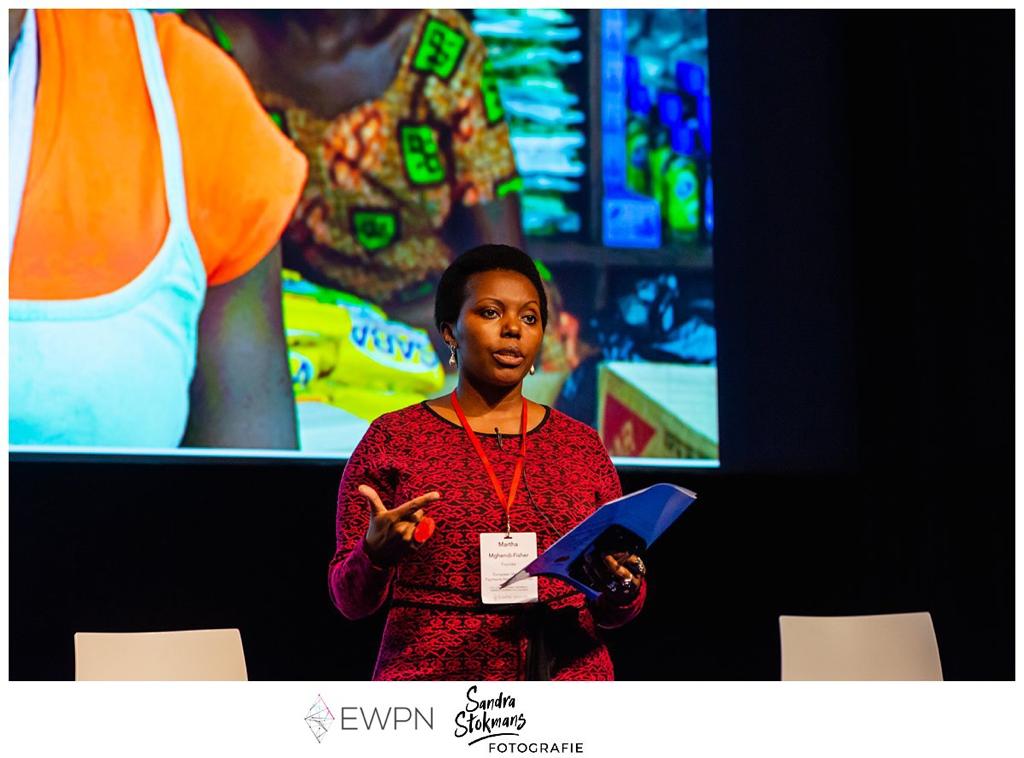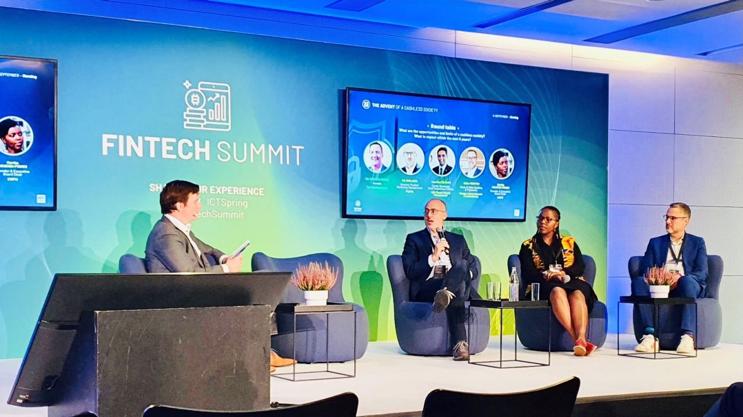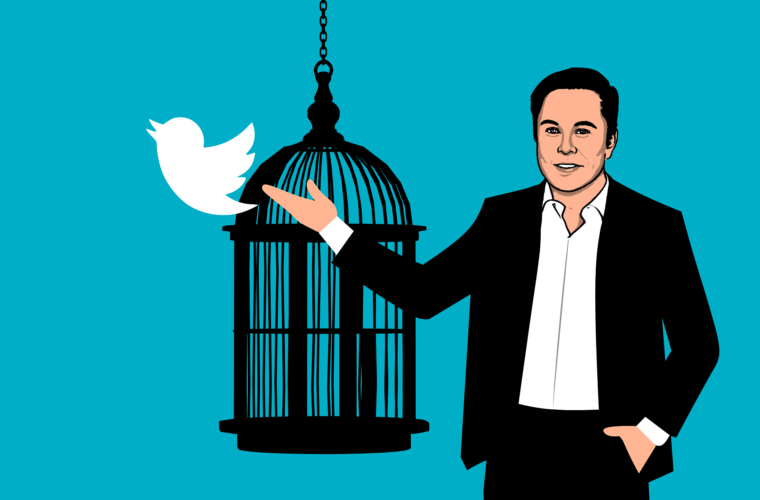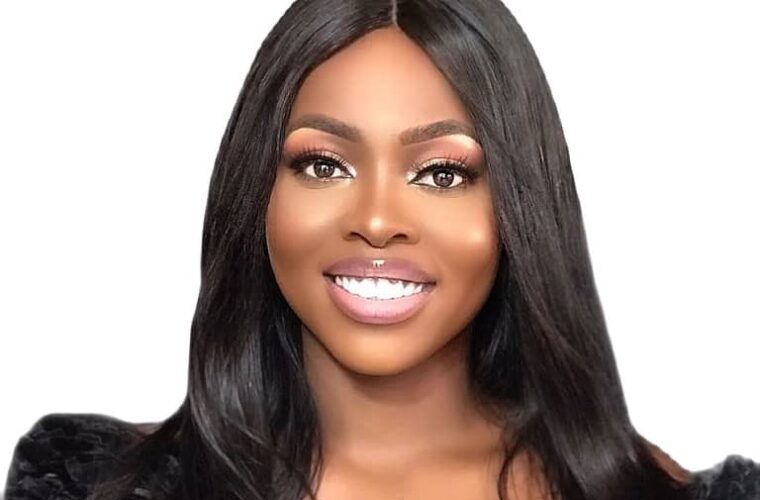Tell us a bit about your background.
Dali Spaces: I am an immigrant, social & impact entrepreneur, international speaker, philanthropist, and angel investor. I am originally from Kenya and migrated permanently to the Netherlands in 2008. I was born and raised in a typical African village communal family, where the kids belonged to the community, and everyone was the other person’s keeper and family. People took care of one another.
We shared the little we had. If one lacked flour, they could walk to the neighbours and get a portion of a meal. The community always shared if they required milk, sugar, salt, or even such a simple thing as fire. The Ubuntu way of living was ingrained in us and is/was what makes us. All my life experience is something that drives everything I do in life. The importance and power of a community is what drives my passion.
Fortunately, or unfortunately for me, I took over my paternal grandfather’s entrepreneurship genes and my maternal grandmother’s genes of wanting to help everyone and solve everyone’s problems. My entrepreneurship journey started when I was in primary school, where we used to skip school so we could harvest fruits to sell to fellow students. I always could find things to sell.
My drive and curiosity saw me start my first company in 2005- Jumboservers: a website design, search engine optimisation website, and email hosting company that specialised in helping small businesses utilise internet-based technologies to grow their businesses. We did this for a minimal and affordable fee because these services were too expensive for SMEs to afford in that period. With zero training in any technology, I taught myself web design, hosting, support, etc. and had the opportunity to combine entrepreneurship with helping people.
Fast forward to 2009, when I accidentally got into Fintech & Payments when I moved to the Netherlands. I fell madly in love with the combination of technology, financial services, and the magic that happens when the two marry. I worked for one of the largest global processors supporting acquirers and issuers for six years before moving to a merchant acquirer for four years.
In 2018, I decided to leave corporate life to focus on the initiatives that allowed me to combine my expertise and passion to create the impact and change I wanted to see. I use technology to bring people together, make an impact, help people and change the lives of people while doing things that matter.

Tell us about Dali Spaces.
Dаlі Spaces іѕ a dіgіtаl glоbаl community thаt еmроwеrѕ, еnаblеѕ, аnd ѕuрроrtѕ women еntrерrеnеurѕ. Wе рrоvіdе access to іnvеѕtоrѕ, mеntоrѕ, resources, еvеntѕ, аnd a holistic еnvіrоnmеnt conducive tо propel female-founded еntrерrеnеurіаl success.
Wоmеn еntrерrеnеurѕ аrе twісе аѕ lіkеlу tо cite аbѕеnсе of a ѕtrоng ѕuрроrt ѕуѕtеm аѕ an obstacle to оwnіng a buѕіnеѕѕ, аnd thе lасk of access to аѕѕеtѕ аffесtѕ thеіr аbіlіtіеѕ tо оbtаіn lоаnѕ аnd rаіѕе capital. Our gоаl іѕ to lоwеr thе bаrrіеrѕ thаt female еntrерrеnеurѕ fасе and рrоvіdе аn equal landscape to launch, grоw, аnd ѕсаlе buѕіnеѕѕеѕ.
In line with our vіѕіоn of a wоrld in which women hаvе equal орроrtunіtіеѕ, we are соmmіttеd tо contributing tо the Unіtеd Nаtіоnѕ dеfіnеd Suѕtаіnаblе Dеvеlорmеnt Goals: no роvеrtу, gеndеr еԛuаlіtу, dесеnt wоrk and economic growth, аnd tо rеduсе іnеԛuаlіtу bу 2030.
The founding team of Dali Spaces is literally from all over the world, so we combine international expertise with entrepreneurial expertise. We go beyond hard skills and investment but also have a clear eye on the women founders. The plan is to be people-driven, and help founders focus on growing their businesses.
Next to what we are doing at Dali Spaces, we initiated a project called InvestFem, a global database of female-founded businesses and investors 100% committed to funding female entrepreneurs.
How did the idea of Dali Spaces come up?
My background and roots and my life experience strongly drove it. Growing up in a community-driven and powered environment, I knew, experienced firsthand, and knew the power of the collective. I saw the changes and impact that came through collaboration, partnership and community working and helping one another. I wanted to bring this sense of belonging to entrepreneurship.
Being raised by strong women, from my grandmother, mother, and aunts, instilled the message that I needed a strong support background to get further in life. This is what I wanted to share with my fellow founders and entrepreneurs. The magic of the power of the collective.
It was so easy to come up with the name Dali Spaces because this is my mother’s name. My mother is the kindest, strong-willed, strong, independent, and hardworking person I know. Having the honour of being birthed and raised by her and seeing her go through what she went through to raise six kids while also helping her siblings and mother taught me so much about life. Every day I strive to be at least half the woman she is.
The name is to honour her and all incredible women who go against the grain, challenge the status quo and do what needs to be done to build the lives they want for themselves and their families.
I wanted to share this with women globally, so I reached out to my good friends, leaders, and fellow founders, Andrea Dunlop and Nadja van der Veer, as they shared a strong connection, mutual respect, and deep commitment to creating opportunities for women.
What’s driving your decision to focus on Africa at this stage of your entrepreneurial journey?
I am an African woman, so by default, my love and passion will always stay with Africa. Growing up in Kenya, I know firsthand how the odds are stuck so much against the African founder and entrepreneur. Even though Africa as a continent is the home of the highest numbers of women-owned businesses globally, the loops that women business owners have to jump and the hurdles they have to overcome are astronomical.
These businesses are the cornerstone and drivers of many African economies, but they lay under-tapped, underutilised and under-supported. Even without proper and formal support, they continue to strive. But imagine how these businesses would grow with the appropriate support. Their growth would explode, economies would thrive, and many more people would have jobs created by these businesses. I know the potential that African women have. They are the sleeping giants of the continent, and I want to play my part in awakening them.
I am also at a stage of my life where I am highly blessed beyond measure with opportunities, funds, connections, and so many other things that it would be embarrassing to myself, my core beliefs, ethos, and my ancestors not to give back and share with my fellow African women business owners. I also firmly believe that I am a custodian of such blessings and opportunities, hence my responsibility to make sure they reach the people they are meant to, hence my decision to ‘go back home”.
This doesn’t mean that Dali Spaces is just for African Women Founders. On the contrary, it is a global community. Our community members are based in different continents and countries. But at this moment, we know for a fact that African Women founders are at the lowest of the food chain, so we want to bring them up and help level the playing field, get them to the level with other women. We can collectively move forward as a global community.
Do people look into investing in African startups? How easy is it for International people to find investing opportunities in Africa?
When it comes to funding, it’s a whole different story. A frustrating and infuriating story. We know the facts and numbers when it comes to funding for women founders globally. The numbers are ridiculously low, and since African women founders are at the bottom of the food chain, they only get the crumbs that are left. There is also the challenge where they are forced to take on a male co-founder and, in many cases, a white male co-founder to get through the doors of investors. So, to answer your question, investors are looking to invest in African startups, but the funding comes with ridiculous conditions and terms, if they come at all.
The good news is that we are now seeing more locally powered and organised business angel groups coming up to fill the gaps, which is helping. We are also seeing more impact and patient capital allocators coming into the continent, more fintech offering credits, international organisations offering grants and subsidies, etc. Things are looking up, but at a prolonged rate than we would like to see.
As for international investors finding opportunities in Africa, they need to look and WANT to invest in Africa. Africa is the youngest continent and the future of entrepreneurship, so it would be rather shortsighted for investors to ignore the opportunities that the continent has to offer.
What are the challenges that African Women entrepreneurs can face when it comes to raising capital?
Some challenges are global and know no borders, so in some cases, the challenges faced by women entrepreneurs are similar to those faced by entrepreneurs in other countries. But it’s worse for founders in Africa. As I mentioned earlier, in some cases, they are forced to take on male co-founders of non-African origin so that they can have a ‘potential’ funding meeting. It is utterly ridiculous.
The other thing is access to grants and subsidies, tax breaks, business communities etc. Local grants are hardly available in many African countries, and grants can play a crucial role in helping jumpstart businesses, especially at the ideation and starting phase. Many Western countries have grants and subsidies which can help bridge the gap.
Angel Investing is starting to pick up in the continent, so access to that first check is also challenging for founders. Proper pitch training is also lacking in most cases. This means that some founders might have really amazing businesses they are building. Still, if they can’t articulate and properly explain the business model to potential investors, their chances of getting funds are lower.
The other thing is understanding term sheets and numbers. Entrepreneurship is a numbers game. If one doesn’t understand their business numbers, they can’t fully understand what is needed to run and manage their businesses properly. It also exposes them to predatory lenders and investors who come up with terms that don’t favour the entrepreneurs. There are so many other challenges that we address at Dali Spaces.

And when it comes to growing your business? What does it require from you as a founder?
As for growing a business, I can only share my experience as an entrepreneur myself. The first thing is to understand why one is getting into the business in the first place. What is their end game? Why do they think they are the best person to start the business they are starting? Do they have what it takes, especially when in relation to skills and expertise, and if they don’t, do they have access to people with these skill sets?
Is there a market for whatever it is they are building? Is it a must-have or nice to have a product or service that their business offer? Do they understand their consumers and the market? Is it a business out of necessity (to survive) or passion? It’s like building a house; if the foundation is not strong enough, it will fall apart. So, to grow a business, one must lay a proper foundation.
Founders also need to understand their strengths and weakest points. By being 100% honest about this, the founder can look for experts and people who fill in the gaps the founder lacks. Asking yourself questions like: Am I a builder or operator? Do I like building things from scratch or running things? Do I have the patience, resilience, and grit to power through the tough times? It’s not a one-size-fits-all because different businesses require different things to grow. So, it’s a matter of having these personal conversations with the self and really knowing oneself.
For example, I am very good at building things from scratch and bringing people together, but I have processes and am not too fond of the politics that come with businesses. Therefore, my strength lies in building the foundation and starting something new, but not scaling, because scaling requires processes and politics.
I own both my strengths and weaknesses, allowing me to assemble the right people with the right expertise and skills to help take the business or initiative to the level it should. Building a team is about letting go on the one hand and providing the right leadership skills on the other hand, so your team knows how to propel the business together with you.
Growing a business requires not just money and paying consumers; a founder can also make or break a business. Hence, a founder needs to understand themselves authentically and honestly, their business, their weak points, where they need external help and their strength. One also needs to know when to walk away and whether they want to scale to a big company or stay a small business.
What are Dali Spaces’ future goals?
We are working on many things which will be implemented in the coming months and years. This is a long-term game for us.
The initial idea was also to have physical community spaces, and just when we were ready to sign the contract for our first physical location, Covid happened, so we pivoted to a digital community. We still want to bring this vision to life.
We also want to expand to other regions once we bring the African entrepreneurs to a level comparable to those in other countries. The end goal is to have an equal playing field for all entrepreneurs regardless of their gender, race, location, country etc.
Tell us about future events that will take place.
We have many events planned for the coming years. The most exciting one for us is the Inaugural Event that we will be hosting on October 26th & 27th in Nairobi. This will bring together a curated group of founders, investors, suppliers, ecosystem players and other stakeholders for interactive and intense sessions that are meant to dive deep into the challenges and opportunities African women founders present and how we can forge the way forward to make tangible and impactful changes to propel entrepreneurship in Africa.
We also have other events planned to share more information and dates in the coming months.



